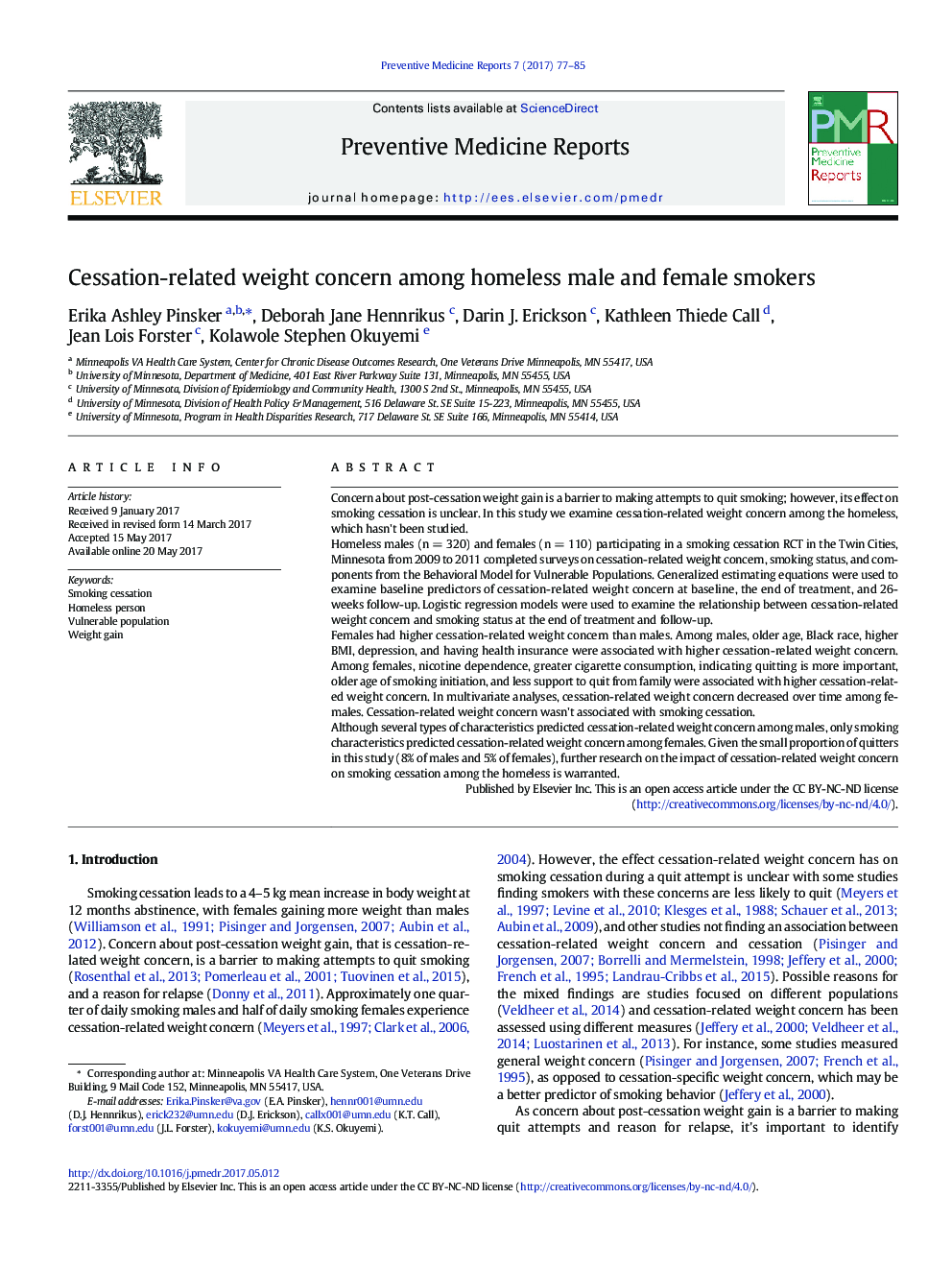| کد مقاله | کد نشریه | سال انتشار | مقاله انگلیسی | نسخه تمام متن |
|---|---|---|---|---|
| 5723706 | 1609085 | 2017 | 9 صفحه PDF | دانلود رایگان |
- Concern about post-quitting weight gain is higher among homeless females than males.
- In multivariate analyses, weight concern decreased over time among homeless females.
- Several types of variables predicted weight concern among homeless males.
- Only smoking characteristics predicted weight concern among homeless females.
- Weight concern was not associated with smoking cessation among the homeless.
Concern about post-cessation weight gain is a barrier to making attempts to quit smoking; however, its effect on smoking cessation is unclear. In this study we examine cessation-related weight concern among the homeless, which hasn't been studied.Homeless males (n = 320) and females (n = 110) participating in a smoking cessation RCT in the Twin Cities, Minnesota from 2009 to 2011 completed surveys on cessation-related weight concern, smoking status, and components from the Behavioral Model for Vulnerable Populations. Generalized estimating equations were used to examine baseline predictors of cessation-related weight concern at baseline, the end of treatment, and 26-weeks follow-up. Logistic regression models were used to examine the relationship between cessation-related weight concern and smoking status at the end of treatment and follow-up.Females had higher cessation-related weight concern than males. Among males, older age, Black race, higher BMI, depression, and having health insurance were associated with higher cessation-related weight concern. Among females, nicotine dependence, greater cigarette consumption, indicating quitting is more important, older age of smoking initiation, and less support to quit from family were associated with higher cessation-related weight concern. In multivariate analyses, cessation-related weight concern decreased over time among females. Cessation-related weight concern wasn't associated with smoking cessation.Although several types of characteristics predicted cessation-related weight concern among males, only smoking characteristics predicted cessation-related weight concern among females. Given the small proportion of quitters in this study (8% of males and 5% of females), further research on the impact of cessation-related weight concern on smoking cessation among the homeless is warranted.
Journal: Preventive Medicine Reports - Volume 7, September 2017, Pages 77-85
